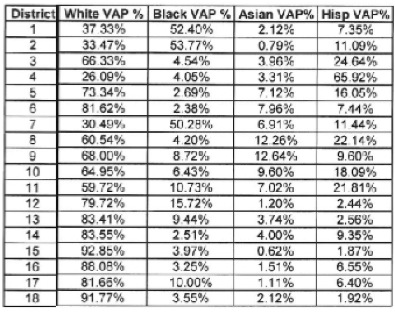* From the Tribune…
…the governor’s involvement in crafting a new state budget has proved so minimal that Democratic Senate President John Cullerton told colleagues Monday that Quinn is “irrelevant” on the issue. […]
Quinn’s higher spending demands were ignored when the Senate sent him the final pieces of a $33.2 billion spending plan Monday. It’s more than $2 billion less than what Quinn requested. Senators, however, added an additional $431 million in spending on education and social services to a public works bill, daring House members to give up funding on projects in exchange for cutting the money.
Cullerton’s “irrelevant” comment came in a closed-door meeting with Senate Democrats.
“Yes, yes, yes, he used the word ‘irrelevant,’” said Sen. Mike Jacobs, D-East Moline. The comment was confirmed by three other Senate Democrats, who said Cullerton was characterizing the spending plan Quinn introduced as too far from what lawmakers could pass.
Later, Cullerton and his aides denied that Quinn was irrelevant to the budget process, noting that the governor fulfilled his duty to introduce a spending plan to lawmakers even though it “exceeded our revenues.”
* And then there was this…
Gov. Pat Quinn has said that he is not in favor of gambling at the state fairground. While he hasn’t said he would veto it, the governor has said he opposes top-heavy expansions of gambling. He added that, each time a bill was introduced, it seemed to get bigger.
Lang noted during floor debate that the governor was careful not to use the word “veto.”
“Those of us down here are state representatives — we pass laws, and when we pass them, he gets to review them,” Lang said.
“If a bill was on his desk that paid off a billion and a half dollars of bills, and he had no other way to pay it off, I think he’d want to take a strong look at that bill.”
* And this…
The House advanced the ComEd bill to the Senate on a 67-47 vote, despite an outright veto threat from Quinn
* And this…
An attempt to overturn controversial new health insurance contracts for state workers and retirees was approved by the Illinois House on Monday.
The measure flew through the House on a 98-15 vote, but could be vetoed by Gov. Pat Quinn, whose deputies OK’d the contracts for Blue Cross Blue Shield in the first place.
The governor’s office wouldn’t comment on a possible veto of the plan, but instead recommended workers and retirees review their benefits options in order to make a decision before a June 17 sign-up deadline.
* Coincidentally, this topic was the subject of my most recent statewide syndicated newspaper column…
Shortly after Gov. Pat Quinn introduced a budget this year which was way out of balance, called for even higher taxes and increased state spending, the General Assembly decided to ignore him.
That was back in February. Things haven’t changed much since then.
The governor’s original budget proposal was just so out of sync with political and fiscal reality that pretty everybody knew pretty quickly that something different would have to be done. It wasn’t long before House Speaker Michael Madigan and Senate President John Cullerton decided that the best way to pass a reasonable, realistic budget was to cut the governor out of the process and hand the budget-making responsibilities over to the legislative appropriations committees, with strict spending limits.
When I asked Speaker Madigan earlier this spring if Quinn had become irrelevant to the process, Madigan said that the governor had not. Quinn had introduced a budget, Madigan said. That was the governor’s role, he added, politely ignoring the fact that for decades governors have had infinitely larger roles in the state’s budget process.
Senate President John Cullerton was asked last week why the governor has seemed so invisible.
“He kind of put himself in this position,” Cullerton said. “He proposed an unbalanced budget, and we’re cutting it.”
In order to make sure that legislators remembered he still had a big weapon at his disposal, the governor has repeatedly run right up to the edge of threatening to veto the legislature’s budget if he didn’t get what he wanted.
“I’m going to make it crystal clear to our legislators of both parties of both houses, we’re not going to jeopardize our economic recovery and our jobs for policies that are very, very harmful to our schools,” Quinn said in early May. “We’re not going to have severe, radical cuts in our education and our schools. We’re not going to have severe, radical cuts in our healthcare. We’re not going to put the healthcare of our Illinois workers in jeopardy. We’re not going to have severe, radical cuts in our public safety… We’re not going to let them do that.”
“My job,” Quinn said, “is to be the goalie to protect the people of Illinois from radical, severe cuts in their fundamental way of life.”
It’s true that Illinois governors have extraordinarily strong constitutional powers when it comes to vetoes. But governors cannot increase spending in budget bills. They can only reduce or eliminate spending. If Quinn did eliminate any spending, those programs would not be funded until the General Assembly returned to act on his vetoes.
If, for example, Quinn decided to veto the State Police’s appropriations bill because it didn’t meet his standards of protecting public safety, the coppers wouldn’t have any operating cash until legislators acted on his veto.
And since the General Assembly won’t return to Springfield until October or November, Quinn would have to call a special session during the summer and risk upsetting legislators so much that they might very well override him. And then there would go his remaining relevancy right out the window.
The governor also hasn’t seemed to learn any lessons. After being snubbed in February for introducing an out of whack budget, then complaining that legislators were cutting programs too much, Quinn actually had the gall to ask the legislative leaders last week to give him $300 million to spend any way he wished.
That’s simply inane. At a time when legislators were looking for even the tiniest cuts to preserve the same much-needed state programs that the governor said he wanted to protect, Quinn decided he’d ask for a gigantic discretionary fund.
Adding insult to injury, the governor didn’t even bother to identify a way to pay for his slush fund.
More than almost anything else I can think of, that request demonstrated just how far out of touch the governor has become this spring. All Quinn got out of it were rolled eyes, deep sighs and slowly shaking heads from people who had taken on the very painful task of trying to balance a budget that hasn’t been balanced in years.
If you want to be relevant, you can’t be counterproductive.
* Related and a Statehouse roundup…
* Senate panel OKs ending workers’ compensation
* State House passes Illinois version of DREAM Act for children of immigrants
* Lawmakers send Illinois Dream Act bill to Quinn
* Legislation would create private scholarship fund for illegal immigrant students
* Taylorville clean-coal plant gets go-ahead from House committee
* Bill toughening nursing home rules passes House
* Bike rider’s straight on red measure heads to governor
* Flurry of activity as lawmakers try to finish
* Senate adds $431M to Illinois budget
* State budget sent to Quinn
* Senate passes budget, sends it to Quinn’s desk:
* Legislative budget battle heading to final day
* Parties jockey for position on state budget
* House OKs Chicago casino, slots at O’Hare, Midway
* Illinois House OKs more casinos in gambling bill
* House OKs expanded gambling, including at fairgrounds
* House OKs massive gambling expansion
* House votes to add 5 casinos
* House OKs Arlington slots, Lake County casino
* House OKs ComEd rate plan, veto possible
* Quinn gets bill giving COGFA veto power on state health contracts















